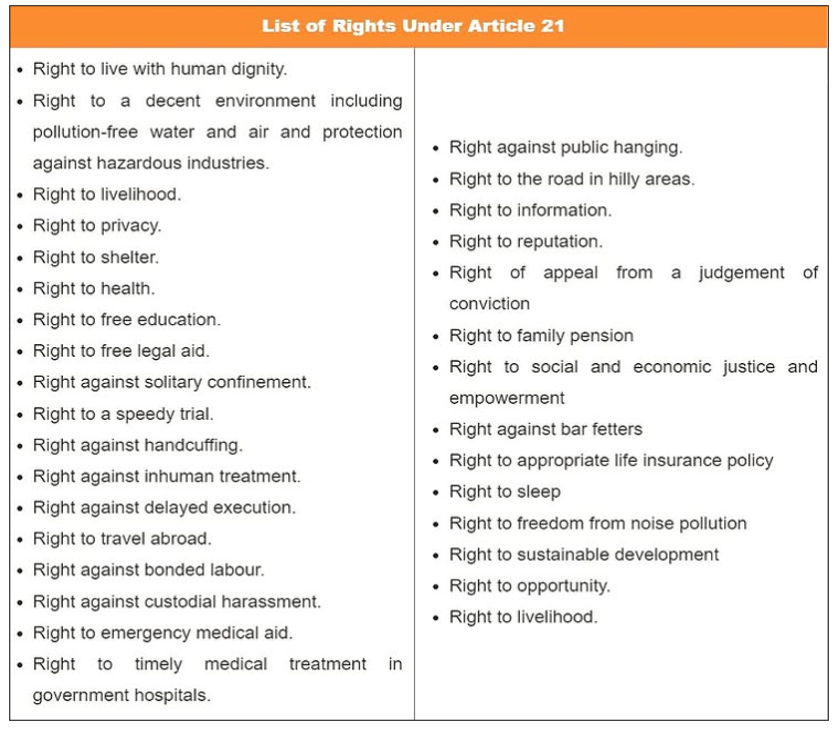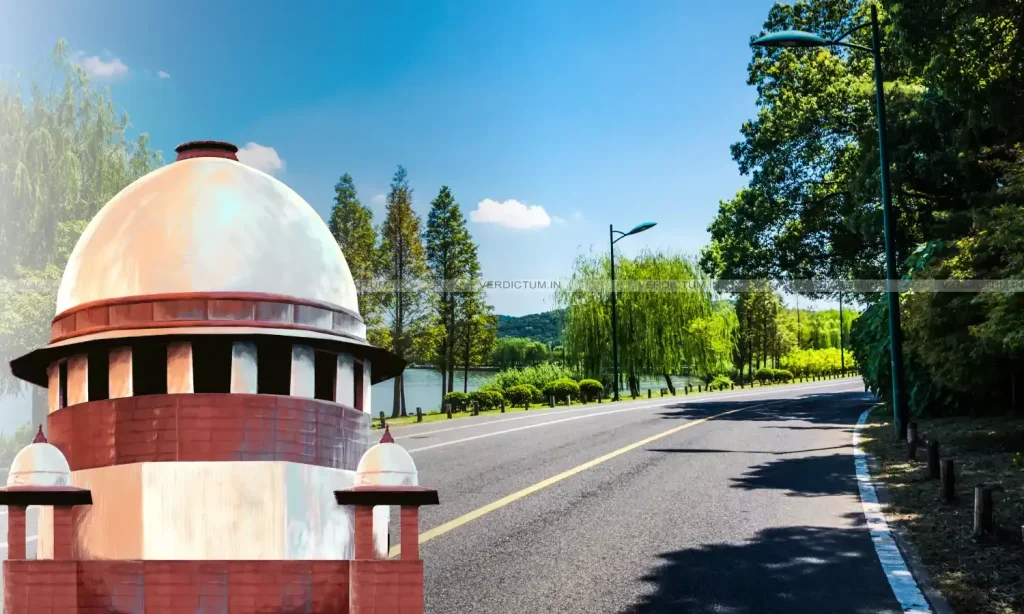SYLLABUS
GS-2: Fundamental rights and Structure, organization and functioning of the Executive and the Judiciary.
Context:
The Supreme Court of India ruled that the right to safe, well-maintained, and motorable roads is part of the fundamental right to life under Article 21 of the Constitution.
Background of the Case
- The Supreme Court was hearing an appeal against a decision of the Jabalpur Bench of the Madhya Pradesh High Court, related to concession agreement between the two entities for the development of the Umri-Pooph-Pratappur Road on a ‘Build, Operate and Transfer.’
- The judgment arose from an appeal by Umri Pooph Pratappur (UPP) Tollways Private Limited against the Madhya Pradesh Road Development Corporation Limited (MPRDC).
Supreme Court Ruling
Part of Article 21: Court held the right to safe, well-maintained, and motorable roads is an essential part of the fundamental right to life under the Article 21 of the Constitution of India.
State’s obligation: The court clarified that the State has a constitutional duty to develop and maintain the roads directly under its jurisdiction.
The Court emphasised that the Madhya Pradesh Road Development Corporation (MPRDC), established in 2004, is responsible for:
- Development, construction, and maintenance of State Highways, district roads, local roads, and government buildings.
- Maintenance and development of National Highways within the state on a contract basis.
- It cited the Madhya Pradesh Highways Act, 2004, which repealed the 1936 Act, reinforcing the State’s duty in road development.
Linking with Right to Freedom: The Supreme Court observed that “since the right to access any part of the country, with certain exceptions and restrictions under certain circumstances, is a fundamental right guaranteed under Article 19(1)(g) of the Constitution, the right to safe, well-maintained, and motorable roads is recognised as a part of the right to life under Article 21 of the Constitution of India,”
The court rejected the claim of exclusive jurisdiction of the Madhya Pradesh Arbitration Tribunal, constituted under the Madhya Pradesh Madhyastham Adhikaran Adhiniyam, 1983, in disputes involving public works contracts.
Article 21 of the Constitution of India

- It declares that no person shall be deprived of his life or personal liberty except according to procedure established by law.
- This right is available to both citizens and foreigners within Indian territory.
- SC in Maneka Gandhi Case (1978): Apex court ruled that the right to life and personal liberty of a person can be deprived by a law provided the procedure prescribed by law that is reasonable, fair and just.
- Expanded Interpretation: The Supreme Court has significantly expanded the scope of Article 21 through various landmark judgments, incorporating rights like the right to livelihood, the right to a clean environment, and the right to privacy.



